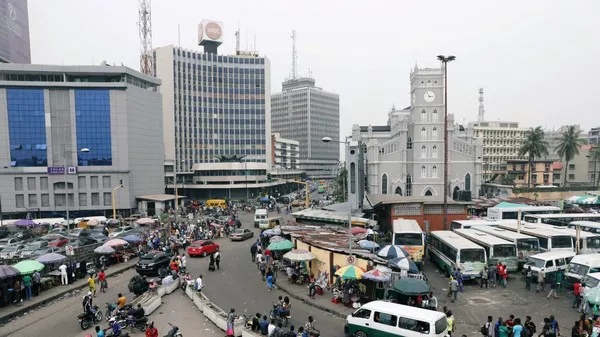Africa, often portrayed as a continent of poverty and struggle, is also home to some of the wealthiest nations in the world. With abundant natural resources, strategic geographic locations, and growing economies, these countries have emerged as economic powerhouses on the continent. In this article, we will explore the top 10 richest countries in Africa, highlighting their key economic indicators, major industries, and factors contributing to their wealth and prosperity.
The 10 Richest Countries in Africa
1. Nigeria
As the most populous country in Africa, Nigeria also boasts the largest economy on the continent. With a GDP of over $450 billion, Nigeria’s economy is driven by its vast oil reserves, which account for a significant portion of government revenue and export earnings. In addition to oil, Nigeria has a diverse economy with thriving sectors such as telecommunications, banking, and agriculture. Despite its wealth, Nigeria faces challenges such as corruption, infrastructure deficits, and economic inequality.
2. South Africa
South Africa is renowned for its well-developed economy and advanced infrastructure. With a GDP of over $350 billion, South Africa is one of the most industrialized nations in Africa. The country’s economy is diversified, with key sectors including mining, manufacturing, finance, and tourism. South Africa is also a major exporter of precious metals such as gold, platinum, and diamonds. However, persistent issues such as unemployment, income inequality, and political instability pose challenges to its economic growth.
3. Egypt
Egypt is a regional economic powerhouse with a GDP of over $300 billion. The country’s economy is driven by diverse sectors such as tourism, agriculture, manufacturing, and services. Egypt is famous for its ancient history and cultural heritage, attracting millions of tourists each year. In addition to tourism, Egypt’s strategic location at the crossroads of Africa, Asia, and Europe has made it a major transportation hub and trading partner. Despite its economic potential, Egypt faces challenges such as high unemployment, poverty, and political instability.
4. Algeria
Algeria is the largest country in Africa by land area and possesses significant natural resources, including oil and natural gas. With a GDP of over $170 billion, Algeria’s economy is heavily reliant on hydrocarbon exports, which account for the majority of government revenue. In recent years, Algeria has made efforts to diversify its economy and promote sectors such as agriculture, manufacturing, and renewable energy. However, the country faces challenges such as high youth unemployment, corruption, and political uncertainty.
5. Morocco
Morocco is a North African country known for its rich history, diverse culture, and strategic location. With a GDP of over $130 billion, Morocco has one of the most dynamic economies on the continent. The country’s economy is driven by sectors such as tourism, agriculture, mining, and manufacturing. Morocco is also a major producer of phosphates and a leading exporter of agricultural products such as citrus fruits and vegetables. Despite its economic progress, Morocco grapples with challenges such as income inequality, youth unemployment, and regional disparities.
6. Angola
Angola is a resource-rich country in Southern Africa with vast oil and mineral reserves. With a GDP of over $120 billion, Angola’s economy is heavily dependent on oil exports, which account for the majority of government revenue. In recent years, Angola has made efforts to diversify its economy and promote sectors such as agriculture, manufacturing, and infrastructure development. However, the country faces challenges such as poverty, corruption, and economic inequality.
7. Ghana
Ghana is a West African country known for its stable democracy, vibrant culture, and growing economy. With a GDP of over $65 billion, Ghana has one of the fastest-growing economies in Africa. The country’s economy is diversified, with key sectors including agriculture, mining, manufacturing, and services. Ghana is also a major exporter of cocoa, gold, and oil. Despite its economic progress, Ghana faces challenges such as infrastructure deficits, unemployment, and poverty.
8. Kenya
Kenya is a leading economy in East Africa with a GDP of over $95 billion. The country’s economy is driven by diverse sectors such as agriculture, tourism, manufacturing, and services. Kenya is known for its vibrant technology sector, with innovations such as mobile money revolutionizing financial services. The country is also a major exporter of tea, coffee, and horticultural products. Despite its economic potential, Kenya faces challenges such as corruption, security threats, and income inequality.
9. Tanzania
Tanzania is a diverse East African country with a GDP of over $60 billion. The country’s economy is driven by sectors such as agriculture, mining, tourism, and manufac
turing. Tanzania is famous for its natural attractions, including Mount Kilimanjaro, the Serengeti National Park, and Zanzibar’s pristine beaches. The country is also a major producer of gold, diamonds, and gemstones. Despite its economic potential, Tanzania faces challenges such as poverty, infrastructure deficits, and political instability.
10. Ethiopia
Ethiopia is a landlocked country in the Horn of Africa with a GDP of over $95 billion. The country’s economy is driven by agriculture, manufacturing, services, and construction. Ethiopia is known for its rich history, cultural heritage, and diverse landscapes. The country is also a major exporter of coffee, flowers, and textiles. Despite its economic progress, Ethiopia faces challenges such as poverty, food insecurity, and political unrest.
Conclusion
In conclusion, Africa is home to some of the wealthiest nations in the world, with diverse economies driven by abundant natural resources, strategic geographic locations, and growing industries. Despite their economic success, these countries face challenges such as poverty, inequality, corruption, and political instability. However, with continued investment, innovation, and good governance, Africa’s richest countries have the potential to achieve even greater prosperity and development in the years to come.
You Might Be Interested In:






















